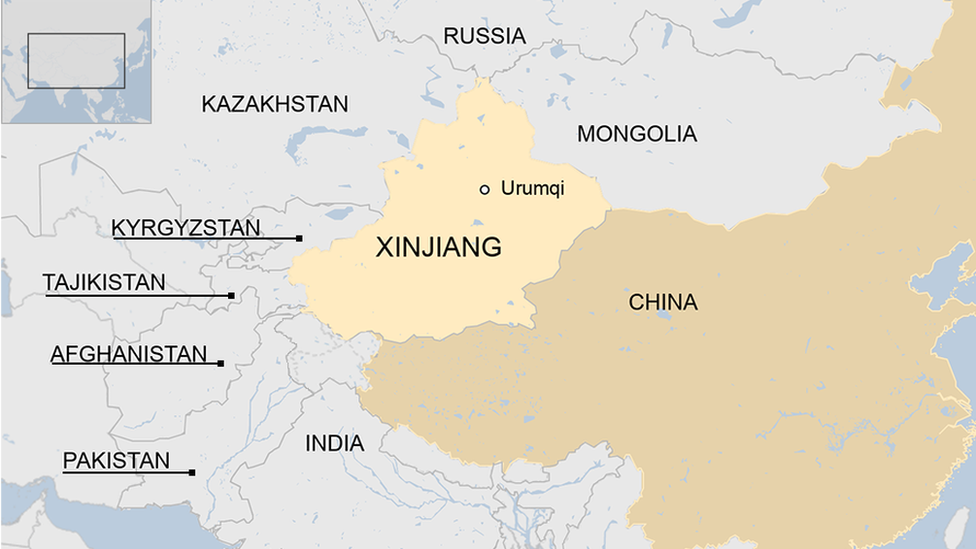China arrests 110 in Xinjiang for spreading online rumours
- Published
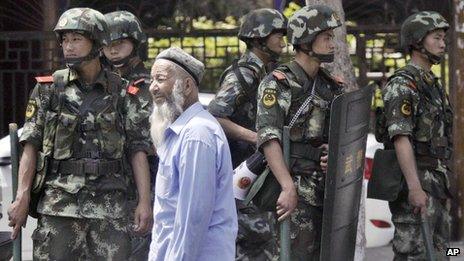
Chinese authorities are worried that online rumours could stir unrest in Xinjiang
Nearly 400 people in China's north-western Xinjiang region have been investigated for spreading online rumours, state media report.
From 26 June to 31 August 110 people were detained and 164 received a warning, the Xinjiang Daily reports.
The suspects disseminated religious extremism and material that threatened stability, it said.
Xinjiang is home to mostly Muslim Uighurs who are a minority in China and have often clashed with authorities.
The Xinjiang Daily, regarded as the mouthpiece of the local Communist Party committee, says the rapid rise of internet users in Xinjiang has seen an increase of religious extremism spreading online.
Criminal offences online such as instigating violence and creating and spreading rumours have also increased, the paper says.
China's leaders are currently trying to stamp out online rumours, which they believe stir unrest.
The Xinjiang Daily report did not say whether any suspects had been released.
It mentioned the cases of some of those arrested. They include a primary school teacher in Kashgar and a farmer in Hotan.
The school teacher created and uploaded four video clips to his personal website in May, it said.
They contained materials which promoted religious extremism, local police were quoted as saying, without giving details.
He gave out the links to his site on Weibo, China's equivalent of Twitter.
The videos received 1,500 views and were posted 11,000 times on Weibo before they were discovered and removed by police.
The farmer in Hotan uploaded 2GB of e-books containing separatist materials to a site which he created, the paper said.
They received more than 30,000 visits and were reposted 600 times and downloaded 14,000 times before being discovered.
He has been charged with instigating separatism, the paper adds.
Dilxat Raxit, a spokesperson for the World Uighur Congress, an umbrella organisation of Uighur groups, told the BBC that these people were simply trying to express their dissatisfaction with the Chinese government.
"They are arrested because they have used the internet to expose the cover-up of the truth of China's crackdown in Xinjiang," he said.
The detentions were part of a continuing security crackdown in Xinjiang, he said
It's believed that at least 100 people have been killed in clashes in the region this year alone.
Ethnic Uighur Muslim in Xinjiang have long complained of cultural and religious repression under Beijing's rule.
China says its grants them wide-ranging freedoms.
Last month, President Xi Jinping vowed to continue the battle against what he described as separatism, terrorism, and religious extremism.
But human rights groups have accused Beijing of exaggerating the terrorist threat in order to justify its tough security policies.
- Published9 September 2013

- Published29 June 2013
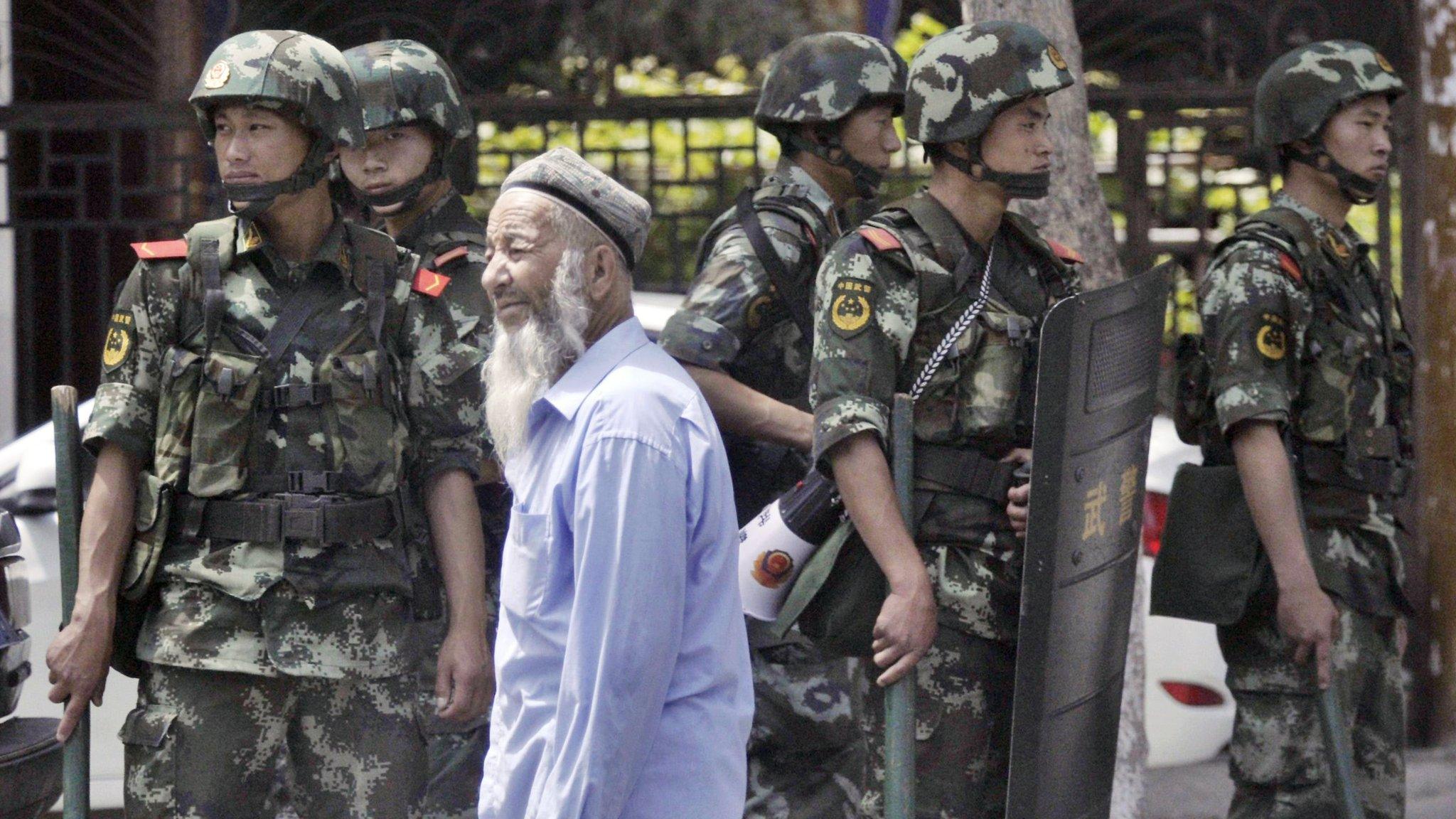
- Published28 June 2013
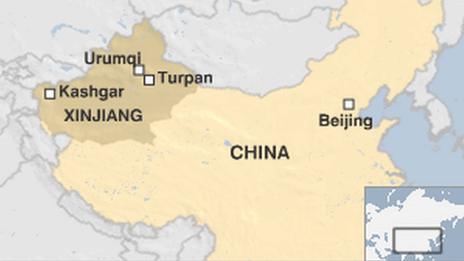
- Published26 June 2013

- Published29 April 2013
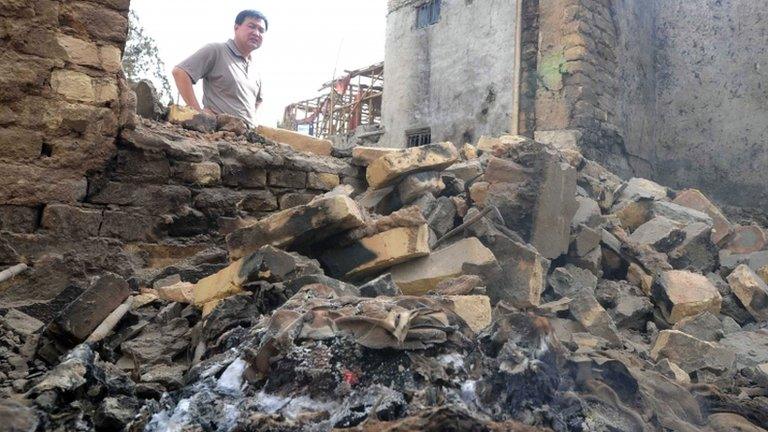
- Published26 April 2013
- Published24 May 2022
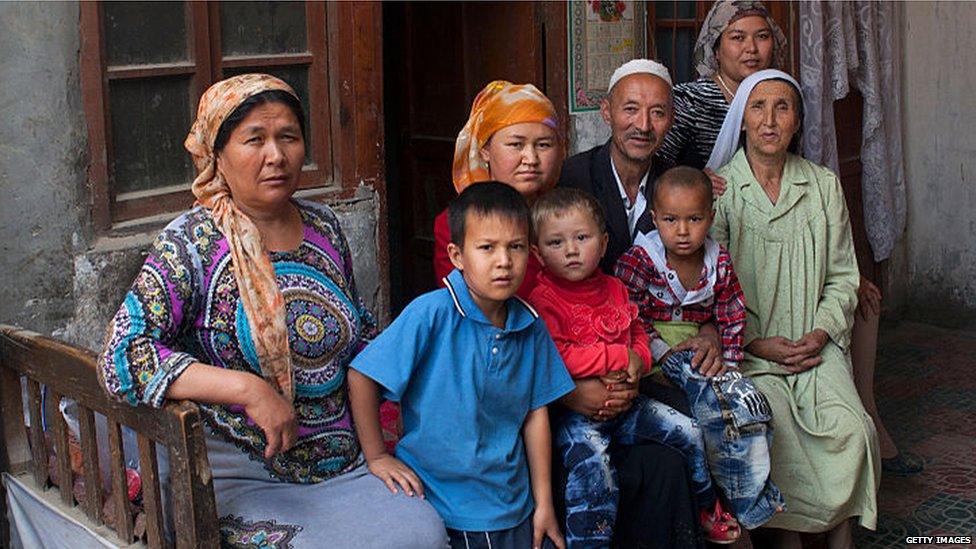
- Published25 August 2023
